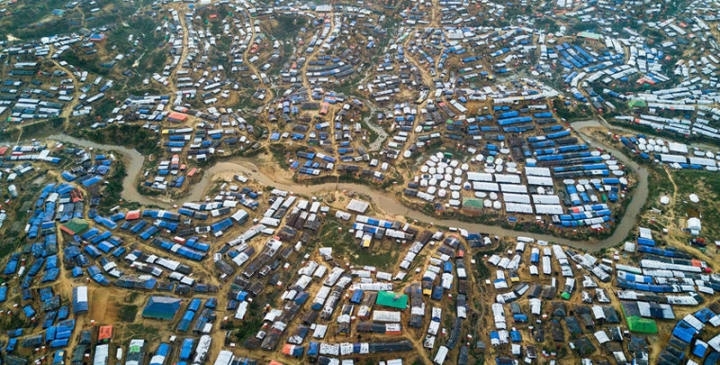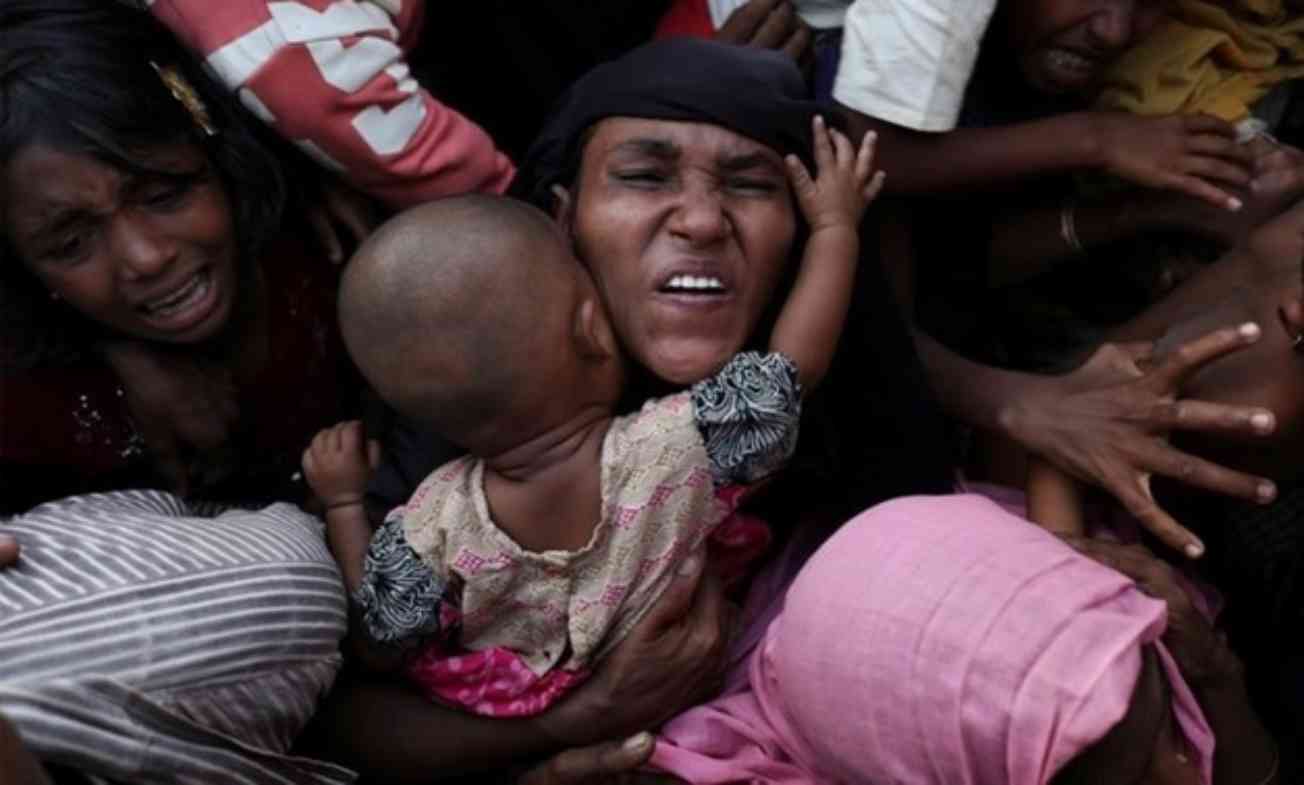Their Story is Our Story (TSOS) has arrived at Cox's Bazar, the world's largest refugee settlement

Their Story is Our Story (TSOS) has safely entered Bangladesh to gather the stories of some of the 725,000 Rohingya refugees who have escaped extreme violence in Myanmar and who now live in Cox’s Bazar - the largest refugee settlement in the world where, according to UNHCR, over half of the residents are children.
This week, we will be reporting our progress from the ground daily, including ways in which you can help.
Here, Melissa Dalton-Bradford, Executive Director, describes the arrival.
It’s not as hot as I’d planned for, but it is heavier.
There aren’t enough superlatives to reach to the edges of the scope or the depth of the despair of Cox’s Bazar here in southeastern Bangladesh. But those who are aware of this crisis recognize the camp where we’ve arrived today with two other members of Their Story is Our Story (TSOS) as the largest refugee camp in the world. Large is right. And crushing in its weight.

More than 700,000 Rohingya refugees have been living here since the summer of 2017 when Myanmar’s military forces drove them from their homeland. Homeland might be too generous a term, really, because the Rohingya people have long been denied the rights of citizenship and have, in turn, been systematically persecuted and tortured for their particular religious beliefs. As is always the case, that persecution and torture has been unleashed primarily on women, and it’s for those particular women—sexually assaulted, raped, shunned and traumatized—that we have come.
Christopher Mortier, our photographer who lives in Mulhouse, France, and Christian Suhr, our videographer from Berlin, Germany, and I made the seemingly endless four-connection trip from Frankfurt am Main, to Cox’s Bazar to meet our contact person from HumaniTerra, our NGO host, at our hotel. Charline Petitjean, who is (conveniently) French and a local worker with HumaniTerra met with us to walk us through the history of Rohingya in Cox’s Bazar, and laid out some of the cultural and security issues we might face, reminding us just how tense things have been in the camp recently. We will see what that means when we enter the camp and are guided to talk with doctor and midwives, surgeons and patients, mothers and children, Bangladeshi, Rohingyas, French, Brits, Americans, other Europeans...
All of this unrolls tomorrow. I’m getting ready by sinking into the deepest sleep possible. I’ll need to be rested to carry the next day.
Tomorrow, we will posting our second diary entry of our story-gathering trip to Cox Bazar, Bangladesh.
HOW YOU CAN HELP
Share refugee stories online and in life amongst your friends and colleagues to help challenge misconceptions and misunderstandings about refugees to aid integration and acculturation in communities.
Donate to Their Story is Our Story (TSOS) so that we can continue sharing refugees’ personal stories.
Donate to Hope Foundation for Women and Children of Bangladesh so that Hope Field Hospital for Women can continue to provide a safe haven for women and children inside the Refugee Camps.
Get involved with HumaniTerra by donating funds or volunteering to work on the ground to help rebuild the care system in a sustainable way.
Official Statement on the Detention of Refugees and Ongoing Community Violence
With another death in Minnesota and continued violence toward individuals and groups standing up for their communities, we acknowledge the profound fear and uncertainty people are feeling--not just locally, but across the country.
On top of this, there are reports that refugees invited and admitted to our country through the U.S. Refugee Admission Program are now being detained, meaning that our new friends and neighbors feel that fear most acutely.
Refugees have already fled violence and persecution once. They came here legally, seeking safety. In moments like these, we reaffirm our commitment to building communities where refugees and immigrants can live without fear. Where they can go to work, send their children to school, and build lives of dignity and belonging.
We call for due process, accountability, and humanity in all immigration enforcement operations. We call upon our leaders to demand the demilitarization of our neighborhoods and cities. And we call on all of us to continue the work of welcoming and protecting those who have been forcibly displaced from their homes.